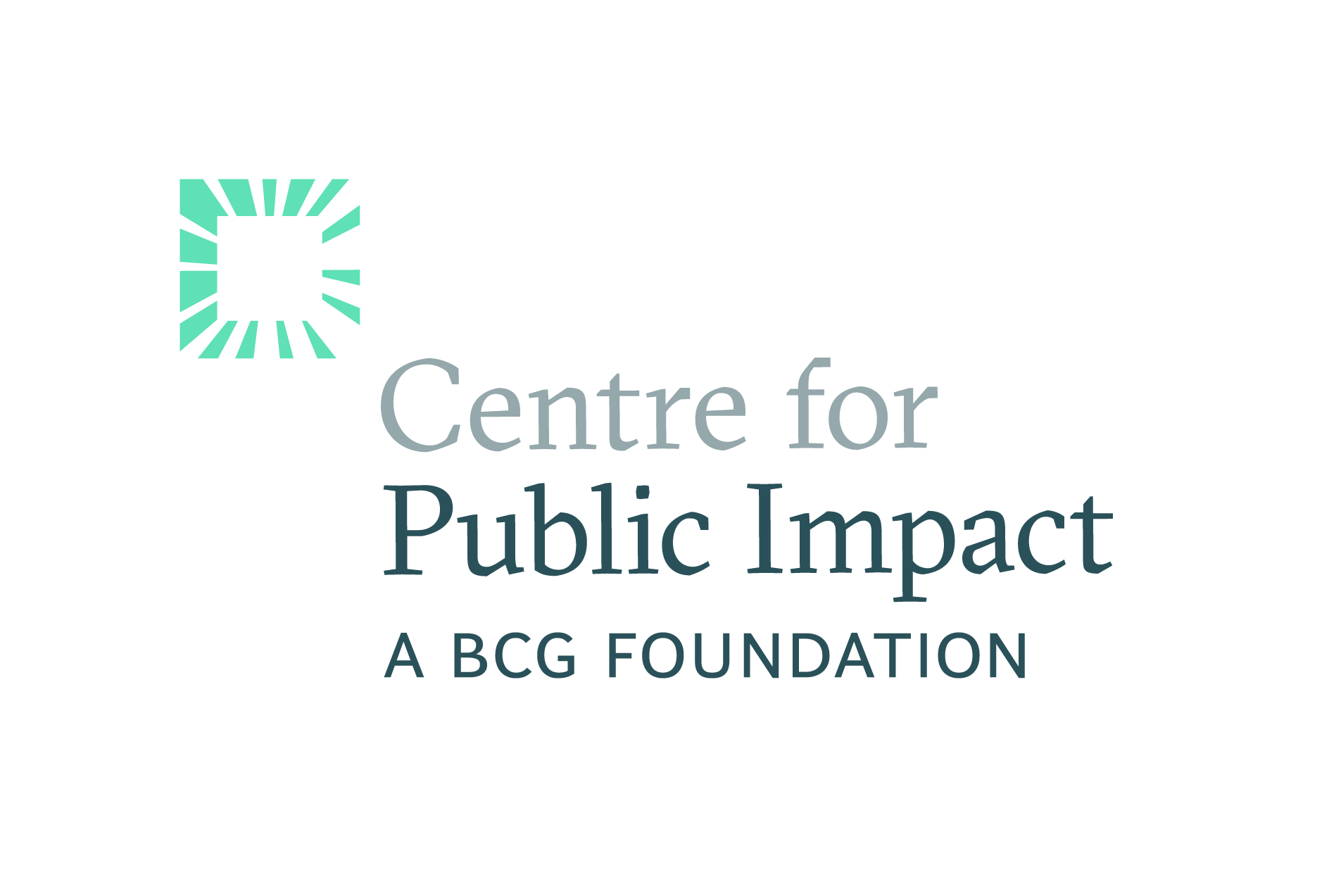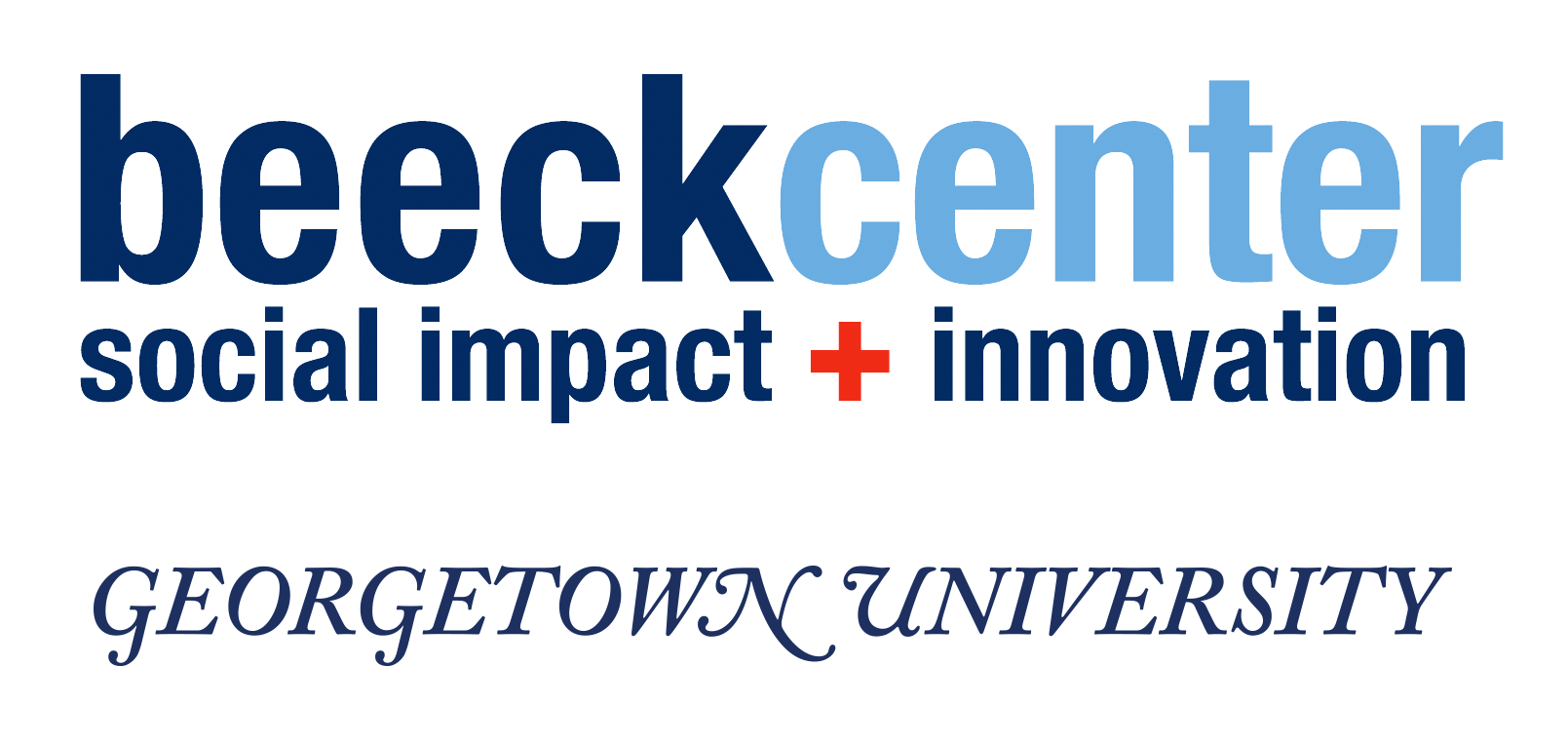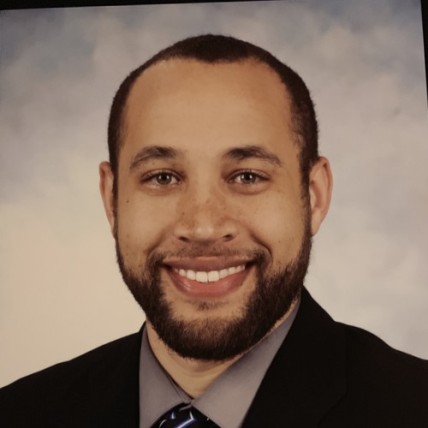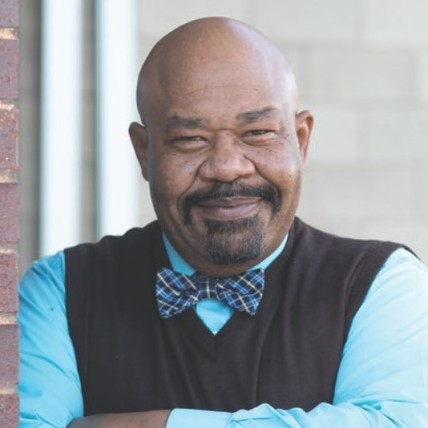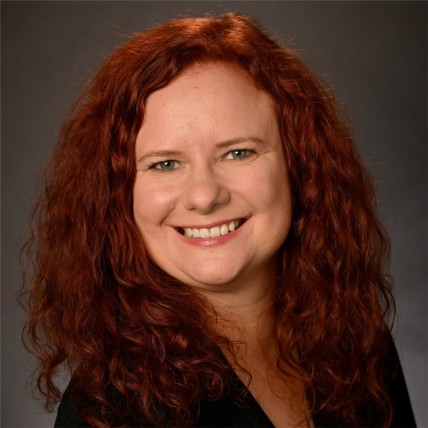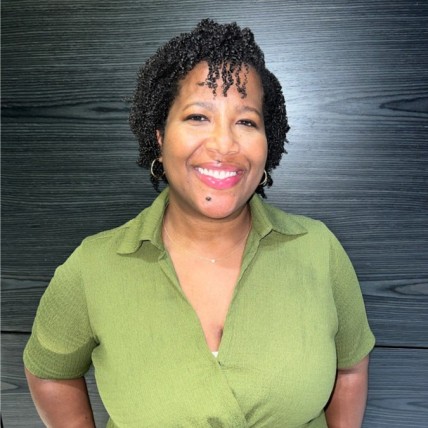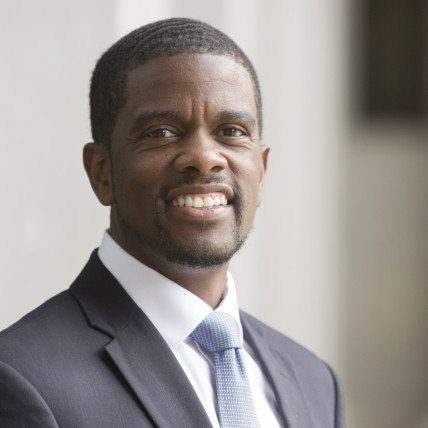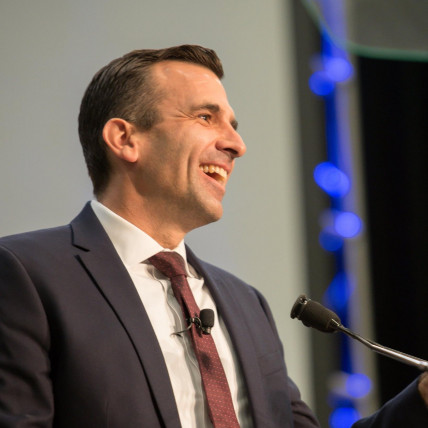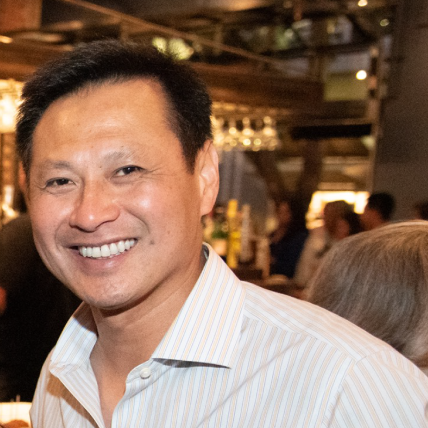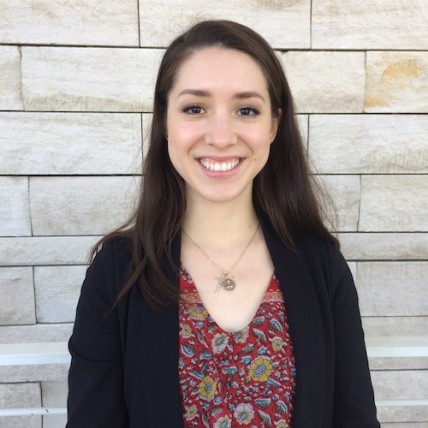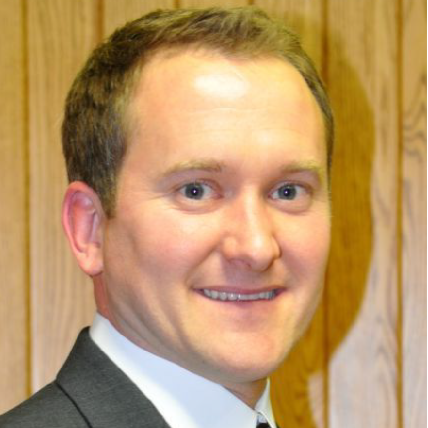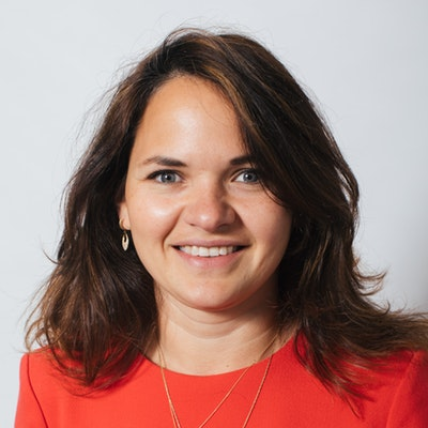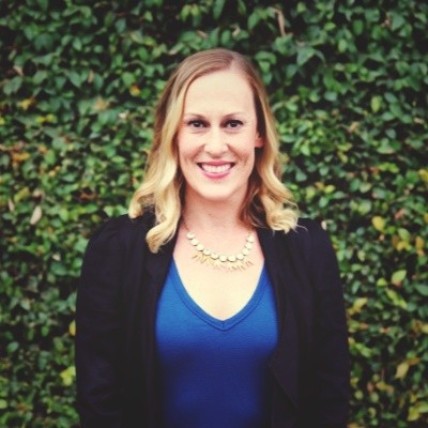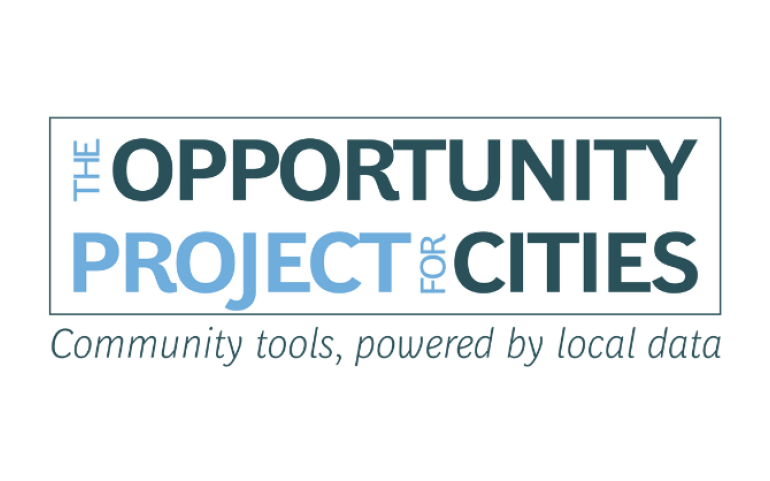

The Opportunity Project for Cities
Community tools, powered by local data
A new model for innovation
The Opportunity Project for Cities puts open data to work. We bring together governments, community leaders, and tech volunteers to address local challenges through the power of open data and community engagement.
During the program, cities create a series of customized digital tools that speak to residents’ most pressing needs. The Opportunity Project for Cities builds a culture of government transparency, accessibility, and responsiveness that strengthens trust with residents and lays the foundation for lasting cocreated innovation.
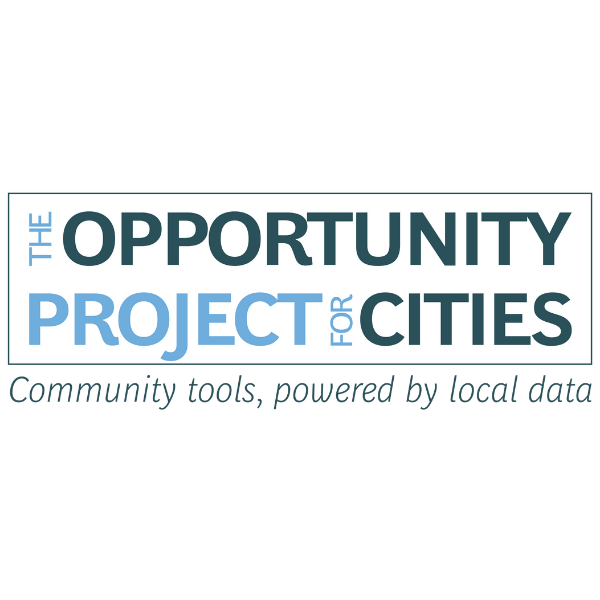
Inspired by the U.S. Census Bureau’s The Opportunity Project (TOP), The Opportunity Project for Cities' methodology is:
Cross-sectoral: Cities face increasingly complex challenges with ever-diminishing resources, and they cannot solve them alone. Our program empowers city governments to partner with community leaders and tech partners to tackle problems and create more effective solutions while simultaneously building trust with residents.
Community-driven: City residents and the local organizations that serve them understand problems best. Our program creates opportunities for communities to take the lead in civic problem-solving and cocreating solutions.
Open-source: Open data has the potential to address residents' pressing challenges, but local governments often need support to turn data into solutions. Our program helps local governments learn to work with technologists to build sustainable products using open and accessible data.
How we work
The Opportunity Project for Cities is executed in a series of 20-week collaborative design sprints that increase community voice in government decision-making and produce valuable tools that address community problems.
During the design sprint, teams:
Understand a problem through community research, interviewing residents and other stakeholders to better define the problem they seek to address
Prototype, test, and build a product that uses open data to solve the problem
Launch the product and ensure that it is widely accessible and able to be sustained long-term
Impact
10 local governments from across the nation have completed The Opportunity Project for Cities program
61 team members have worked with The Opportunity Project for Cities program since its creation
438 residents have been engaged with during The Opportunity Project for Cities program
Testimonials
Get the toolkit and report
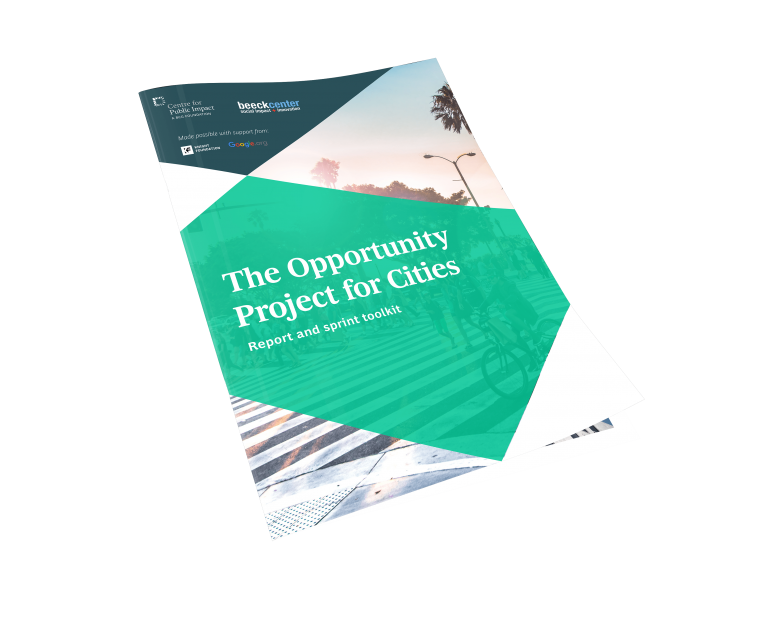
The TOPcities sprint toolkit is a step-by-step resource for community-driven innovation sprints in cities. The toolkit contains everything local governments need to transform public data into digital tools that address pressing local challenges.
To see the toolkit in action, be sure to read our cohort report. Which includes case studies, insights for local governments, and best practices.
Related content

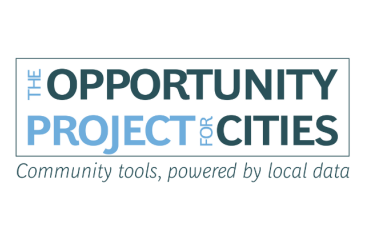
How to Apply Human-Centered Design to Government AI Projects

Launching the AI Opportunity Initiative for Europe


Akron Beacon Journal: Need to find quality, safe housing in Akron? New tool to help renters search properties

Event Advisory: Akron, Detroit, Macon-Bibb County, and Miami-Dad County to showcase digital tools that address challenges in housing, mobility, business permitting, and severe heat

2023 TOPC Demo Day

Press Release: The Beeck Center and the Centre for Public Impact Announce the Third Cohort for The Opportunity Project for Cities

Press Release: The Beeck Center and the Centre for Public Impact release joint report to advance civic technology and open-data innovation in local government

Bloomberg Citylab: How Civic Tech Got a Pandemic Upgrade
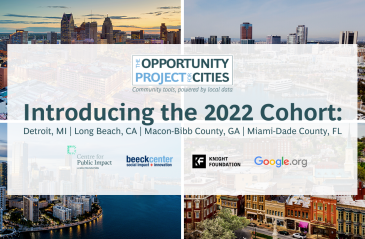
Press Release: Detroit, Long Beach, Macon-Bibb County, and Miami-Dade County work with residents to solve pressing challenges with local data
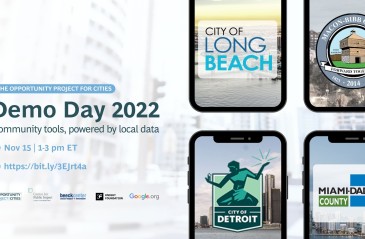
Detroit, Press Advisory: Long Beach, Macon-Bibb, and Miami-Dade showcase solutions designed with community and local data


'Next thing I know, the house is on fire': Macon family in hotel after blaze as county unveils project to fight blight

6+ things to know in #MiamiTech: Realfinity & BCP Global fundings, new Miami Tech Charter now accepting students; Bitcoin 2023 returning in May – and much more

Pleasant Hill project to bring solutions to neighborhood
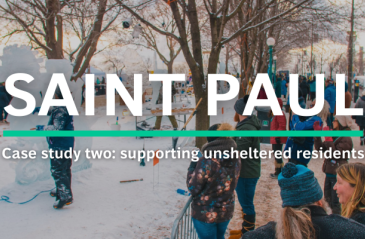
Next City: St. Paul unveils app to help unsheltered residents get help

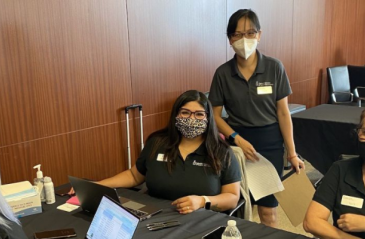
Next City: Facing end of eviction ban, San José to launch rental assistance finder

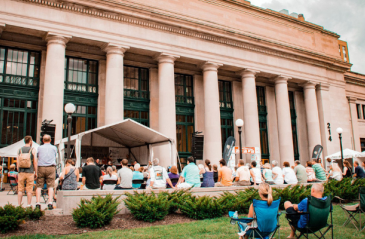
Supporting residents experiencing homelessness in Saint Paul: Interviews with Rachel Walch and Travis Bistodeau on their TOPcities sprint


Preventing residents from falling off the 'eviction cliff' in San José: Interviews with Guadalupe Gonzalez and Fred Tran on their TOPcities sprint

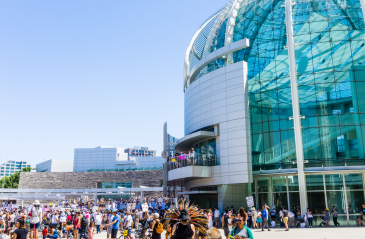
San José, California and Saint Paul, Minnesota set new standard in building data-led housing solutions during COVID-19


How “Good” Does Data Need to be in Order to be Used in Civic Tech?
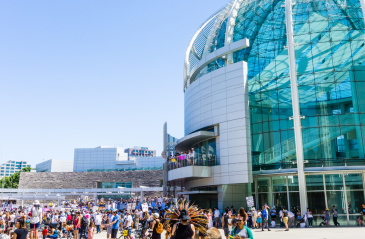
The Opportunity Project for Cities: Lessons from Saint Paul and San José

The Opportunity Project for Cities: Demo day 2021


A New Kind of Collaboration: Breaking Through Traditional Roles to Create Co-Ownership Among Community, City, and Tech Partners

Putting People First: TOPcities Works to Co-Create Solutions to COVID-19 Challenges by Centering Residents and Local Data
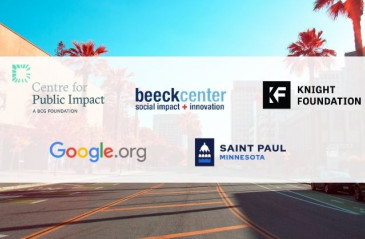
TOPcities puts residents and data at the center of building COVID-19 solutions in San José and St. Paul

Partnering at the intersection of data and government
The Opportunity Project for Cities is made possible through a partnership between the Centre for Public Impact and Beeck Center for Social Impact + Innovation. The Opportunity Project for Cities is supported by the Knight Foundation. Technical expertise is provided through support from Google.org.
